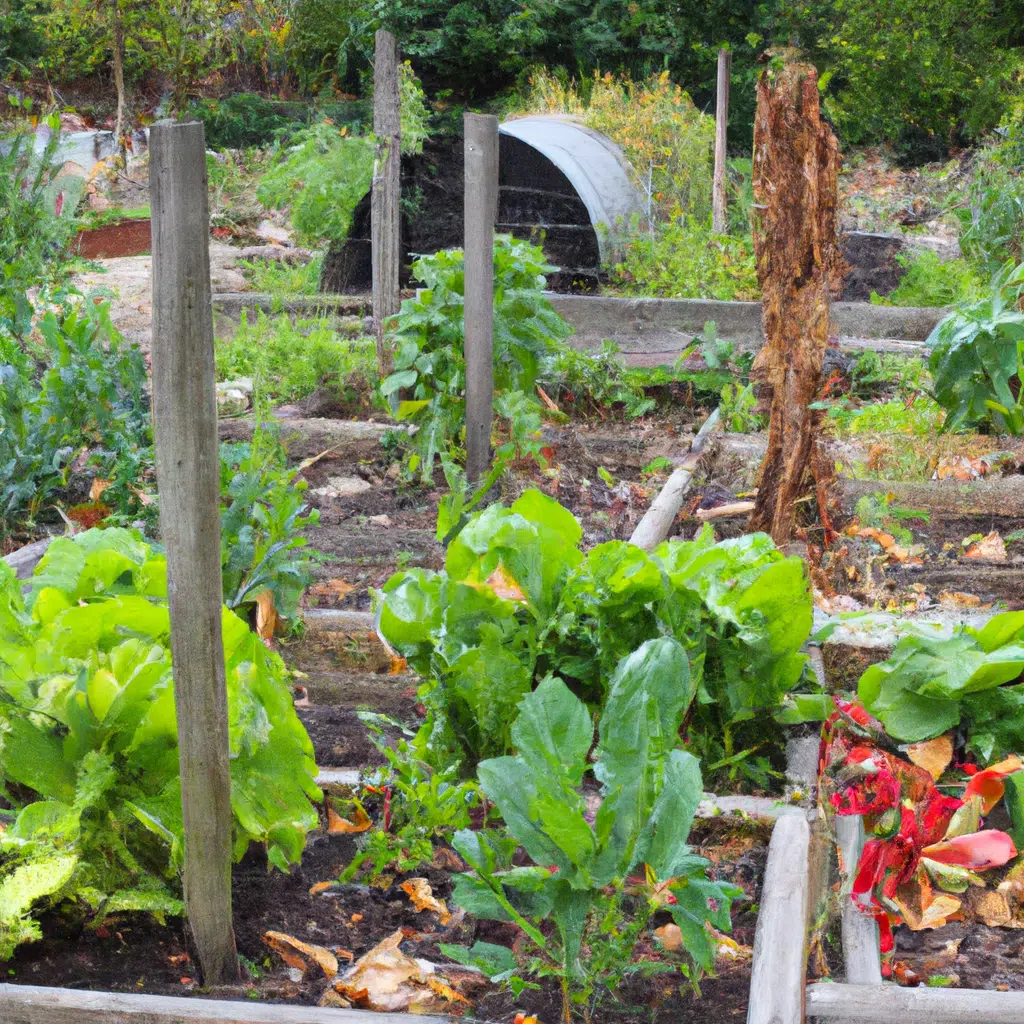In today’s world, where climate change is a reality and environmental degradation is a pressing issue, it is crucial to adopt sustainable practices in every aspect of life, including gardening. Sustainable gardening practices not only help in conserving the environment but also promote healthy living. Kingsbury Market Garden is an excellent example of a sustainable garden that uses innovative techniques to grow organic produce. In this article, we will discuss the sustainable gardening practices that Kingsbury Market Garden uses and how you can implement them in your garden.
Composting
Composting is an essential practice in sustainable gardening. It involves turning organic matter, such as leaves, grass clippings, and food scraps, into nutrient-rich soil. Composting reduces waste, prevents soil erosion, and promotes healthy soil. Kingsbury Market Garden uses a three-bin composting system to produce high-quality compost. The first bin is used to collect fresh organic matter, the second bin is used for a partially decomposed mixture, and the third bin is used for finished compost. The compost is then used to fertilize the garden beds, reducing the need for synthetic fertilizers.
Crop Rotation
Crop rotation is a technique used to prevent soil-borne diseases and pests. It involves rotating crops in different garden beds each season, ensuring that the same crop is not grown in the same bed for two consecutive seasons. Kingsbury Market Garden uses a four-year crop rotation plan, which allows the soil to rest and replenish nutrients. Crop rotation also helps to maintain soil structure, preventing soil compaction and erosion.
Water Conservation
Water is a precious resource, and conserving it is essential in sustainable gardening. Kingsbury Market Garden uses several techniques to conserve water, including drip irrigation and rainwater harvesting. Drip irrigation delivers water directly to the plant roots, reducing water waste and promoting healthy plant growth. Rainwater harvesting involves collecting rainwater in barrels and using it to water the garden. This method reduces the need for municipal water and helps to conserve water resources.
Companion Planting
Companion planting is a technique used to promote plant growth and prevent pest problems. It involves planting different plants together that have a beneficial effect on each other. For example, planting marigolds alongside tomatoes helps to repel pests that attack tomatoes. Kingsbury Market Garden uses companion planting extensively to promote plant growth and reduce pest problems.
Organic Pest Management
Pest management is an essential aspect of sustainable gardening. Kingsbury Market Garden uses organic pest management techniques, such as crop rotation, companion planting, and natural predators, to control pests. These methods are effective in preventing pest problems without the use of synthetic pesticides, which can harm the environment and human health.
Cover Cropping
Cover cropping is a technique used to protect soil during the off-season. It involves planting a cover crop, such as clover or rye, to prevent soil erosion, suppress weeds, and improve soil health. Kingsbury Market Garden uses cover cropping extensively to protect soil during the winter months and improve soil structure.
Conclusion
Sustainable gardening practices are essential for promoting healthy living and conserving the environment. Kingsbury Market Garden is an excellent example of a sustainable garden that uses innovative techniques to grow organic produce. By adopting sustainable gardening practices such as composting, crop rotation, water conservation, companion planting, organic pest management, and cover cropping, you can create a healthy and productive garden while reducing your impact on the environment.
In conclusion, sustainable gardening practices are not only beneficial but also easy to implement. By following the practices used by Kingsbury Market Garden, you can create a beautiful, productive garden that promotes healthy living and environmental conservation. Let us all adopt sustainable practices and make the world a better place for future generations.


